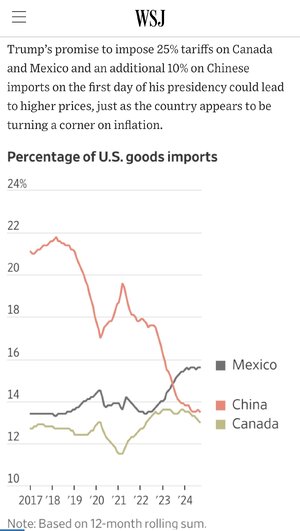superrific
Master of the ZZLverse
- Messages
- 12,351
So Chuck Grassley gave an interview to Politico, in which he said that Trump's tariffs are a "negotiating tool" but he was concerned about a trade war.
What is wrong with these people? The first rule of negotiating tools is that you don't talk about your negotiating tools. I mean, what kind of an idiot broadcasts their negotiating tactics and then expects them to be useful?
Party 1: We propose to pay $30M
Party 2: We want $50M
Party 1: Not a chance. We'll go up to $32M
Party 2 [taking out a gun and pointing it at 1's head]: if you don't agree to 50, I will shoot you through the head.
Party 1: Whoa, isn't that a bit extreme?
Party 2: Well, it's actually not loaded. It's a negotiating tactic. So, $50M it is?
Party 1: Best and final offer: $30M.
This is basically what Grassley says is going to happen. What the fuck is wrong with them?
What is wrong with these people? The first rule of negotiating tools is that you don't talk about your negotiating tools. I mean, what kind of an idiot broadcasts their negotiating tactics and then expects them to be useful?
Party 1: We propose to pay $30M
Party 2: We want $50M
Party 1: Not a chance. We'll go up to $32M
Party 2 [taking out a gun and pointing it at 1's head]: if you don't agree to 50, I will shoot you through the head.
Party 1: Whoa, isn't that a bit extreme?
Party 2: Well, it's actually not loaded. It's a negotiating tactic. So, $50M it is?
Party 1: Best and final offer: $30M.
This is basically what Grassley says is going to happen. What the fuck is wrong with them?


